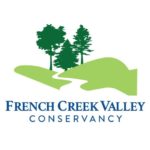Conservation is a choice to protect special places for both present and future generations by safeguarding our water, wildlife, wetlands, meadows and forests while maintaining their natural beauty. Individually, there are many things landowners can do to have a more positive impact on the Watershed. Reducing pesticide use, planting or maintaining riparian buffer zones, practicing best management practices and choosing native plants for landscaping and gardening are just some of the simple things that can anyone can do to help maintain our watershed.
However, if you are thinking about conserving your property, there are numerous options when it comes to protecting the land we love and leaving a legacy for the future. Depending on the needs and wishes of each landowner and the property’s attributes, FCVC uses a variety of techniques to help landowners conserve their land.
What Does Protected Mean?
“Protected” means protected from development. Land that is owned by a land trust remains open to the public for recreational purposes including hiking, fishing, hunting, bird watching, and more. Landowners may also donate land with specific intentions such as creating a wildlife refuge, which may limit some uses according to the landowner’s goals. Land that is placed in a conservation easement may or may not be open to public use, depending on the landowner’s goals and desires.
Land Conservation Has Economic Benefits
Donating land or conservation easements to a land trust for conservation purposes is truly a great legacy to leave for future generations. But, it may also provide significant financial advantages including:
● Federal income tax deductions
● Reduced real-estate taxes while holding re-sale value
● Reduced estate taxes
Donations of land is one of the methods and FCVC can work with you to identify the best arrangement to do that. The full market value of the land donated is tax deductible as a charitable gift. Donated land is often retained as a preserve or it is sometimes transferred to a suitable owner such as a government agency-for example–the PA Game Commission. In some cases, it is sold to a private owner, subject to a conservation easement held by the land trust. (Proceeds from such a sale could fund the long-term management of the conservation easement and/or help the land trust to protect even more land.) Landowners who donate their land to a land trust are entitled to an income tax deduction for the value of the property.
Bargain Sale—In a bargain sale, property is sold to the land trust for less than its fair market value. This makes it more affordable for the land trust to purchase, but offers several benefits to the landowner. It provides cash, avoids some capital gains tax and entitles the landowner to charitable income tax deductions based on the difference between the lands fair market value and its sale price.
Conservation easements are a legal agreement between a landowner and a land trust that permanently limits uses of the land in order to protect its conservation values. Easements allow landowners to continue to own and use their land, and they can also sell it or pass it on to heirs. However, future owners will be bound to the easement’s terms. Easements offer great flexibility and can apply to all or a portion of the property. The land trust is responsible for making sure the easements terms are followed through a stewardship plan.
Each property is different and each property owner has their own ideas about the future of the land they love. Our land protection staff will be happy to work with you to achieve your own unique goals for conserving your property.


